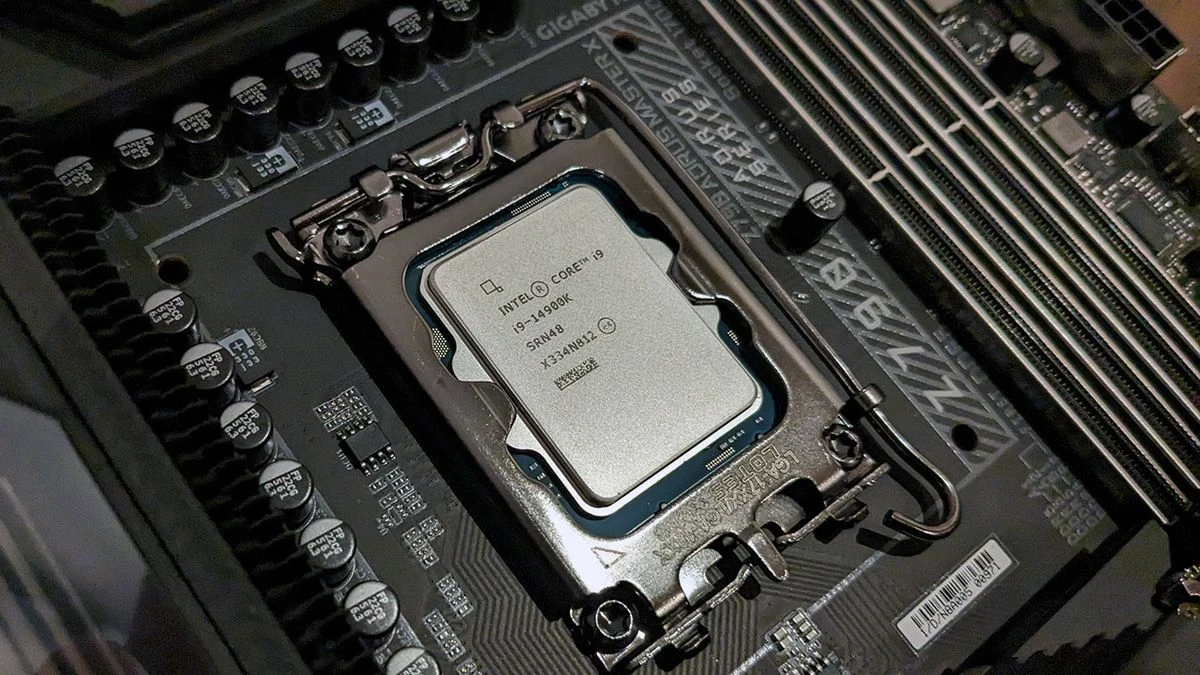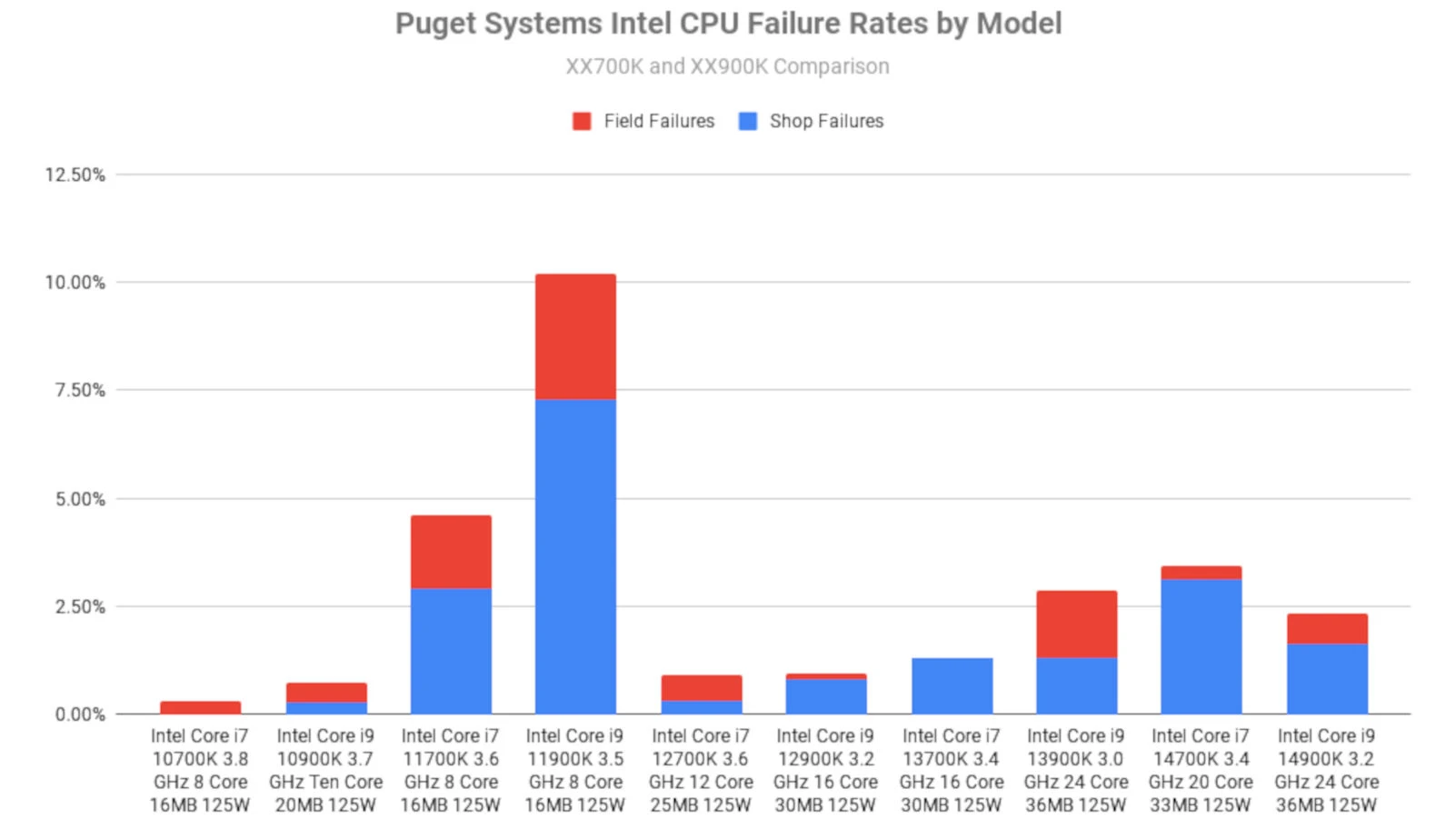The report by Puget Systems, a workstation builder, shows that Intel's CPU stability issues can be resolved if you 'distrust the default setting on any motherboard.'
Intel is currently facing a storm of epic proportions, with falling stock prices, a lost foundry service, thousands of employees being fired, and processors reportedly failing in high numbers due to excessive voltages. It's been difficult to get concrete data about the latter, but Puget Systems, an established manufacturer of workstation computers, has released a report that details its own findings regarding the failure rate for 13th and 14th Generation Intel CPUs. The results may surprise you.
The Puget report's short version is that it has experienced Raptor Lake processors failing and crashing, but the failures have been "much less pronounced in terms of timelines and failure rates."
It may seem that this is at odds with the headlines and if you only read the headlines, one could be forgiven for thinking Intel's processors are bombs waiting to explode at any moment. Due to the nature of PCs built by Puget Systems, its engineers prioritize stability over performance, and configure the motherboards accordingly.
"[O]ur position at Puget Systems is to mistrust default settings on any motherboard. We commit to testing and applying BIOS settings, especially power settings, according to our own best practice, with an emphasis to follow Intel and AMD guidelines, said Jon Bach in the report.
"We pay special attention to the voltage levels and durations of time at which these levels are sustained, especially with Intel Core CPUs." This is especially difficult when these guidelines are hard to find and motherboard manufacturers brand features with their unique naming.
Puget, just like all OEMs and system builders, is still experiencing hardware failures. This is the nature of mass-produced electronic components. The majority of the time, everything will work fine. A small portion will have issues, and a smaller percentage will fail quickly. The following charts may be shocking to some readers.
Puget has a good track record of catching most failures before they leave the shop. But in recent months that's changed a lot, with 14th Gen Core Processors failing after a few months--even when configured by Puget.
It looks terrible, right? These are total failure counts. If a system builder ships hundreds of PCs each month, the failure rates will not be as bad as they seem. Puget Systems has produced a chart that shows the relative failure rates across different CPU generations and models.
This would suggest Intel's purported problem with Raptor Lake may not be as serious as one might think. However, it's still worth mentioning that Puget goes to great lengths to ensure that any workstation that leaves the shop floor is stable as possible.
I did the same thing with my own Core-i7 14700KF. I reduced the boost clocks of the P-and E-cores by a combined 200 MHz. The PL1/PL2 were set to 175 W each, the total current was limited to 280 A and a small offset voltage was applied.
The result is a chip which is a bit slower than a Core i7-14700K, but is also cooler and more stable. Don't get us wrong: I have experienced the dreaded Unreal Engine crashes a couple of time now -- an error that seems indicative of Intel silicon issues. So it would appear my processor will need to be changed at some point.
As Puget's numbers show, the risk of failure is reduced and managed if you are as careful as possible. If you are using an Intel 14th Gen Core i7/i9 on a motherboard with its default BIOS, power and clock settings and/or still running the default BIOS, the risk will be higher. You could join the growing number of Intel users that have experienced the crashing issue.





Comments